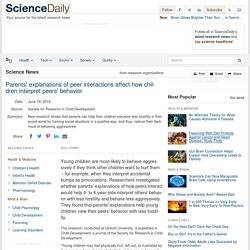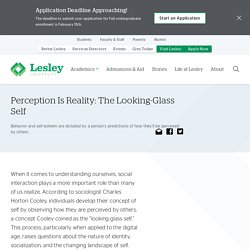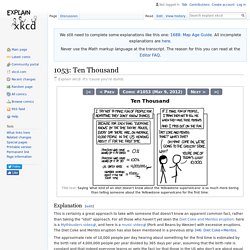

How far does the apple fall from the tree? Parents who want their children to be kind are the most successful in passing on all of their values. Research published in the British Journal of Psychology has found that parents who want their children to have prosocial values are the most successful in instilling all their values in their children compared to those who promote selfishness.

The collaborative study from Royal Holloway, University of London and the universities of Westminster, Vienna, and Bern assessed 418 German and Swiss families to see which parents most strongly transmitted their values to their children. They found that children whose parents wanted them to value helping, supporting and caring for others, were more similar to their parents in their overall value profile than those whose parents promoted striving for power and achievement. Like father, like son? Parents' explanations of peer interactions affect how children interpret peers' behavior. Young children are more likely to behave aggressively if they think other children want to hurt them -- for example, when they interpret accidental bumps as provocations.

Researchers investigated whether parents' explanations of how peers interact would help 4- to 6-year-olds interpret others' behavior with less hostility and behave less aggressively. They found that parents' explanations help young children view their peers' behavior with less hostility. Perception Is Reality: The Looking-Glass Self. The Role of Social Media The rise of social media makes the process of the looking-glass self infinitely more complex.

Platforms like Facebook, Twitter, and the like make it possible to connect with others in ways never before imagined. However, this exposure has led to an ever-increasing number of “mirrors,” thus proposing new questions about the development of self. Social media has brought with it the concept of the “cyber” self, Mary Aiken explains. The cyber self is the version of him or herself a person chooses to present on a digital platform. A person may possess many versions of the cyber self, for example. These unique qualities of the cyber self raise a host of psychological issues and concerns, Aiken explains. However, changes to the social self via digital platforms are not always steeped in such negative implications. Whether digital platforms are ultimately a help or a hindrance to self-identity remains to be seen. A Modern Career in Psychology.
Jameela Jamil: "I Implore You To Make Memories That Extend Beyond What You Have Eaten Today" General global physical requirements for women in 2019: Be thinner, have longer legs, have a small waist, but have a big, pert bottom, with absolutely no stretch marks on it.

Have a thigh gap while supporting this big bottom. Have big but eternally pert breasts, thin upper arms, and a defined collarbone. Have no lines on your face, but do not have a fat face. You must be very angular, but eternally youthful. You must have large eyes, a small nose, and big pouty lips, whatever your heritage. 16 going on 66: Will you be the same person 50 years from now? Research suggests personality is both stable and malleable across the lifespan. How much do you change between high school and retirement?

The answer depends on whether you're comparing yourself to others or to your younger self. The results of a new study, the first to test how personality might change over 50 years and relying on the same data source at both time points, finds that broad patterns of thoughts, feelings and behaviors -- personality -- do change, and this change appears to accumulate with time. But don't compare yourself to others; those who are the most emotionally stable when young are probably going to continue being the most stable as they age. Xkcd: Ten Thousand. This is certainly a great approach to take with someone that doesn't know an apparent common fact, rather than taking the "idiot" approach.

For all those who haven't yet seen the Diet Coke and Mentos eruption: here is a Mythbusters video, and here is a music video (Pork and Beans by Weezer) with excessive eruptions. The Diet Coke and Mentos eruption has also been mentioned in a previous strip 346: Diet Coke+Mentos. The Myers & Briggs Foundation - MBTI® Basics. The purpose of the Myers-Briggs Type Indicator® (MBTI®) personality inventory is to make the theory of psychological types described by C.

G. Jung understandable and useful in people's lives. Categories and Preference. How Accurate Is the Myers-Briggs Personality Test? There are two types of people in the world: those who believe in the Myers-Briggs personality test and those who don't.

Except that's not true. Grouping people into two, three or 16 categories, which is the aim of a lot of personality tests, has never quite worked. And even in the case of the Myers-Briggs Type Indicator (MBTI), which is simultaneously the most popular personality test in the world and the most frequently debunked, non-experts and psychologists alike take varying positions about the value of the tool. About 1.5 million people take the test online each year, and more than 88% of Fortune 500 companies, as well as hundreds of universities, use it in hiring and training, according to The Myers Briggs Company, a California-based firm that administers the MBTI. Even fictional characters, from Disney princesses, to Harry Potter and Darth Vader have been assigned an MBTI type.